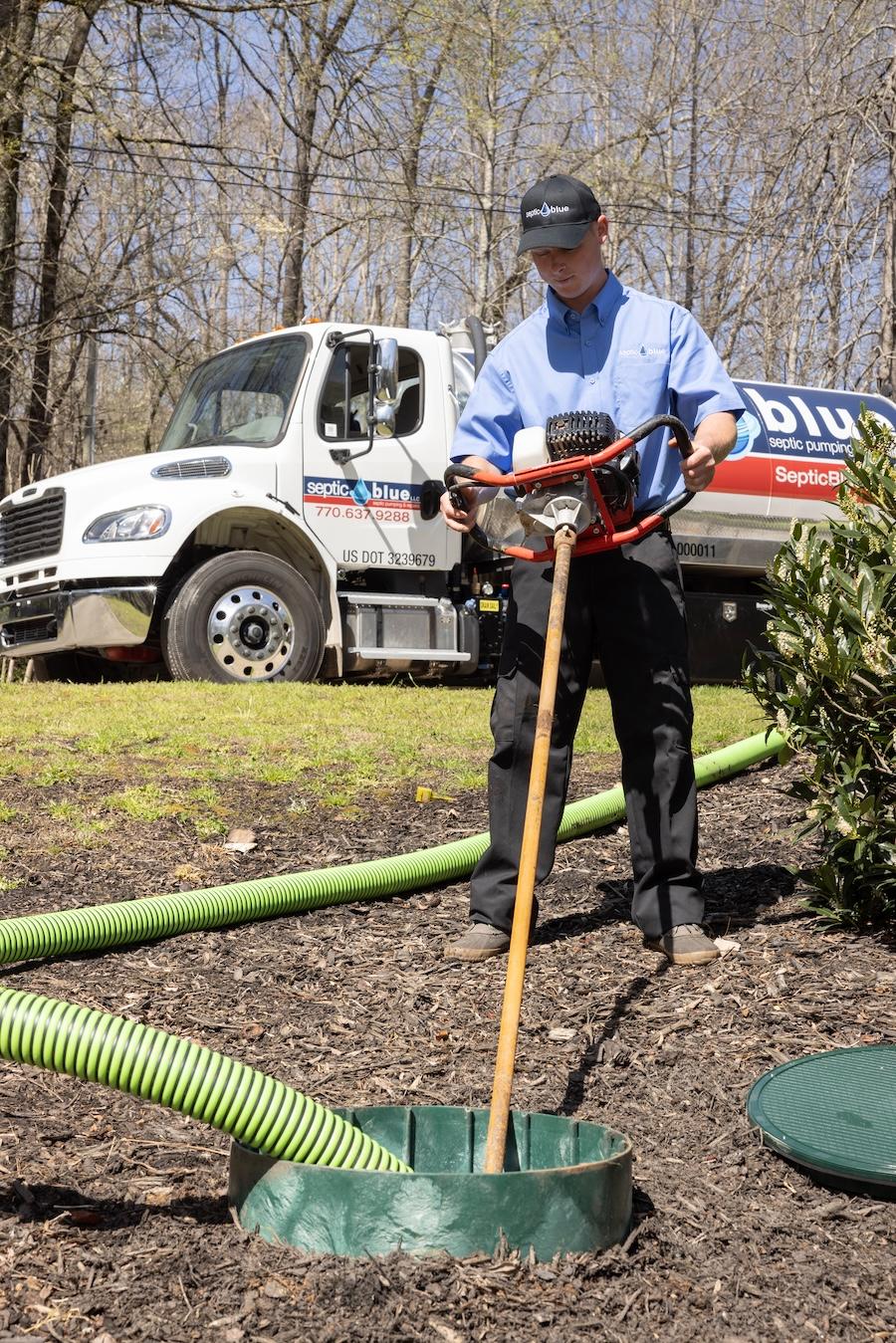WE NOT ONLY PUMP YOUR TANK - WE CLEAN IT! Up to 36 Months Financing Available
Call Septic Blue Now 813-355-9188
It's Easier Schedule Online
WE NOT ONLY PUMP YOUR TANK - WE CLEAN IT! Up to 36 Months Financing Available
Call Septic Blue Now 813-355-9188
It's Easier Schedule Online

If you’re keen on septic system maintenance, you may already be aware of septic tank additives. These products are touted as the alternative to regular septic tank pumping. But the question is: do they work? The simple answer is, septic tank additives do not work.
Today, we’ll explain why septic tank additives are ineffective and how they can damage your septic system. Our septic technicians will debunk the myths surrounding these harmful additives and offer expert advice for proper septic tank maintenance. Septic Blue of Tampa is the septic company to call when you need reliable septic system services.
These are products that claim to improve the performance of septic systems. According to the manufacturers, these additives are made up of sodium bicarbonate, surfactants, calcium, enzymes, bacteria, and other ingredients.
While manufacturers advertise septic tank additives as septic-safe products, that’s far from the truth. The chemical ingredients present in these additives can disrupt the bacterial activity in the septic tank and lead to septic failure. Besides, they won’t make the solids inside the tank ‘disappear’ as they claim. They are only a waste of money, as they offer little to no value. Instead of relying on septic additives, it’s advisable to invest in proper maintenance, including regular septic tank cleaning in Gibsonton, to ensure optimal performance.
If your septic tank is more than 40 years old, it’s more likely to fail due to old age. It’s a good idea to invest in a new septic tank installation instead of trying to repair a failing one. Call the experts at Septic Blue of Tampa if you need to replace your septic tank.
Septic tank additives are harmful to your septic system as a whole. Apart from killing the beneficial bacteria in the tank, they increase the risk of clogs and environmental pollution. It’s advisable to avoid them altogether. Here at Septic Blue of Tampa, we are available to help you with all of your septic system needs. Whether you’re in need of septic installation, septic tank repair, or leach field inspection, our team is ready to provide top-quality services.
If you own a rental property that relies on a…
Read More+Do you have a septic system in your backyard? Are…
Read More+A lovely lush lawn is a beautiful sight for any…
Read More+